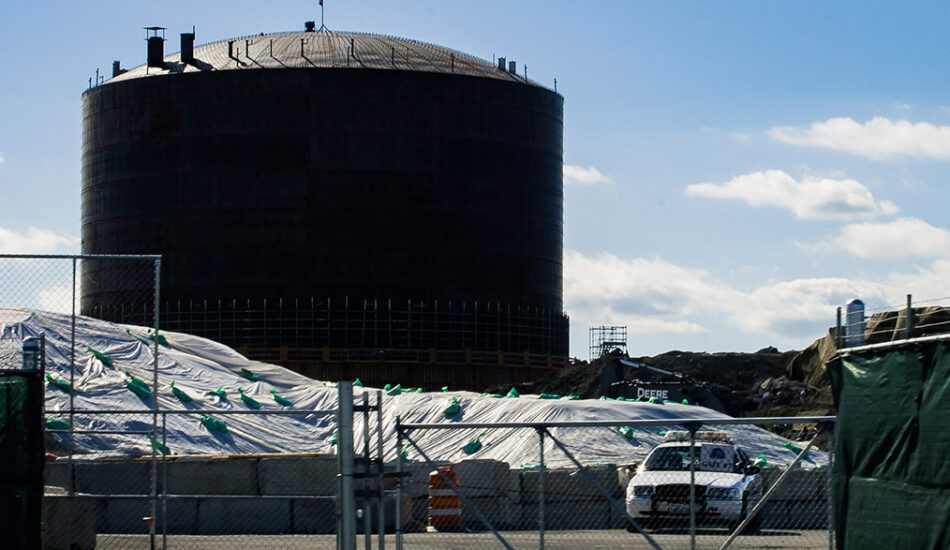By Puyallup Tribe Council member ANNETTE BRYAN and MELISSA MALOTT
Originally published in the Tacoma News Tribune on December 20, 2018
It’s unfortunate that local politics are so thoroughly disconnected from global issues. When it comes to reducing fossil fuel emissions, natural gas offers marginal gains and great risks; it is not the transitional fuel we thought it was a decade ago.
It’s time to get the facts right on the process and impacts of the Tacoma liquified natural gas (LNG) plant.
The arguments in favor of the LNG plant are largely supported by a million dollar, green-washing cable TV campaign purchased by Puget Sound Energy (PSE), not by science. PSE’s poll-tested arguments of clean-green jobs are framed against the backdrop of Commencement Bay to build public buy in.
But that backdrop happens to be the homes of Tacoma taxpayers and the treaty-protected homelands and resources of the Puyallup Tribe of Indians.
The facts do not support PSE’s position. Science-based environmental group Citizens for a Healthy Bay, which originally supported this project, now opposes it after reviewing the supplemental environmental impact statement (SEIS).
Data in the SEIS shows that for the next 40 years, natural gas emissions from this project will create 30 percent more climate pollution than doing nothing. Unfortunately, the SEIS ultimately assesses emissions after 100 years to conclude that the project is better than doing nothing.
Washington’s Office of the Attorney General calls the SEIS findings “fictional.” Looking at this project on a 100-year timeline is misleading because it over-looks the time period in which natural gas emissions are most harmful.
Climate scientists say we have to make major emissions reductions in the next three decades, and we should take a cue from global maritime giant Maersk.
Maersk recently committed to zero-emission ships by 2030 and zero emissions as a company by 2050. This is a heavy lift. Maersk will need entirely new technology to accomplish this.
No one has the answers on how to do this. But Maersk is putting enormous money and effort into it, and enlisting other industries, investors, policy-makers and technology developers in reaching this goal.
Increasing climate emissions via an LNG plant is the wrong way to go and will only undermine Maersk’s efforts.
But not just the science has been bungled. The City of Tacoma, PSE, Port of Tacoma and federal agencies have violated their federal trust responsibility to engage in government-to-government consultation with the Tribe.
They have chosen to ignore the Tribe throughout this entire process and allowed PSE to build the plant without proper permitting, rather than halt construction.
Last month, the state Court of Appeals called out the city for violating open government laws by not fully disclosing project safety data to journalists and the public.
LNG project proponents promise a paltry 18 permanent jobs. More and better jobs can be had by following the lead of the Tribe and forward-thinking companies like Maersk.
As an economic engine for the region, the Tribe has created more than 3,200 jobs in addition to a wide range of indirect economic benefits. It offers a spectrum of initiatives that shape our community, including sheries, public safety, community schools, public health and philanthropy.
The Port and PSE have hyped the gains of the LNG project, but investing in a project that puts our community and environment at risk is not acceptable. It also does not make sense economically.
Why are Tacoma area taxpayers shouldering nancial and environmental risks for a group of foreign investors with investments in the Canadian fossil fuel industry?
The current SEIS study is dishonest as drafted. Trusted scientists across the region have rejected it as inaccurate, incomplete and misleading. It fails to even address a change in the project’s scope with expanded bunker refueling.
The science is wrong. The permitting is incomplete. The process needs to be fixed. The power to do so lies with Tacoma city officials. It’s up to them to reverse course and right these wrongs before this ill-advised project is further permitted.





